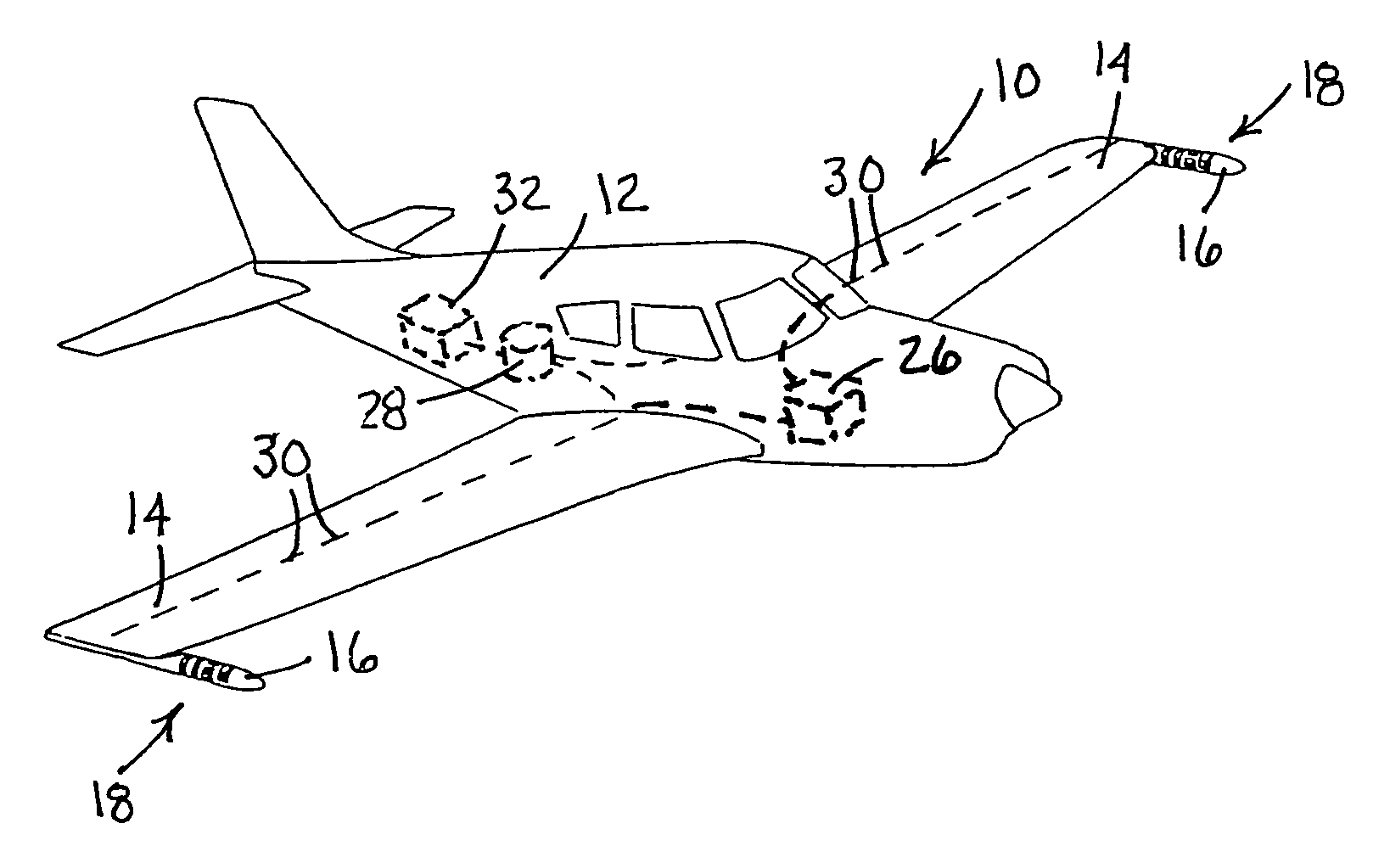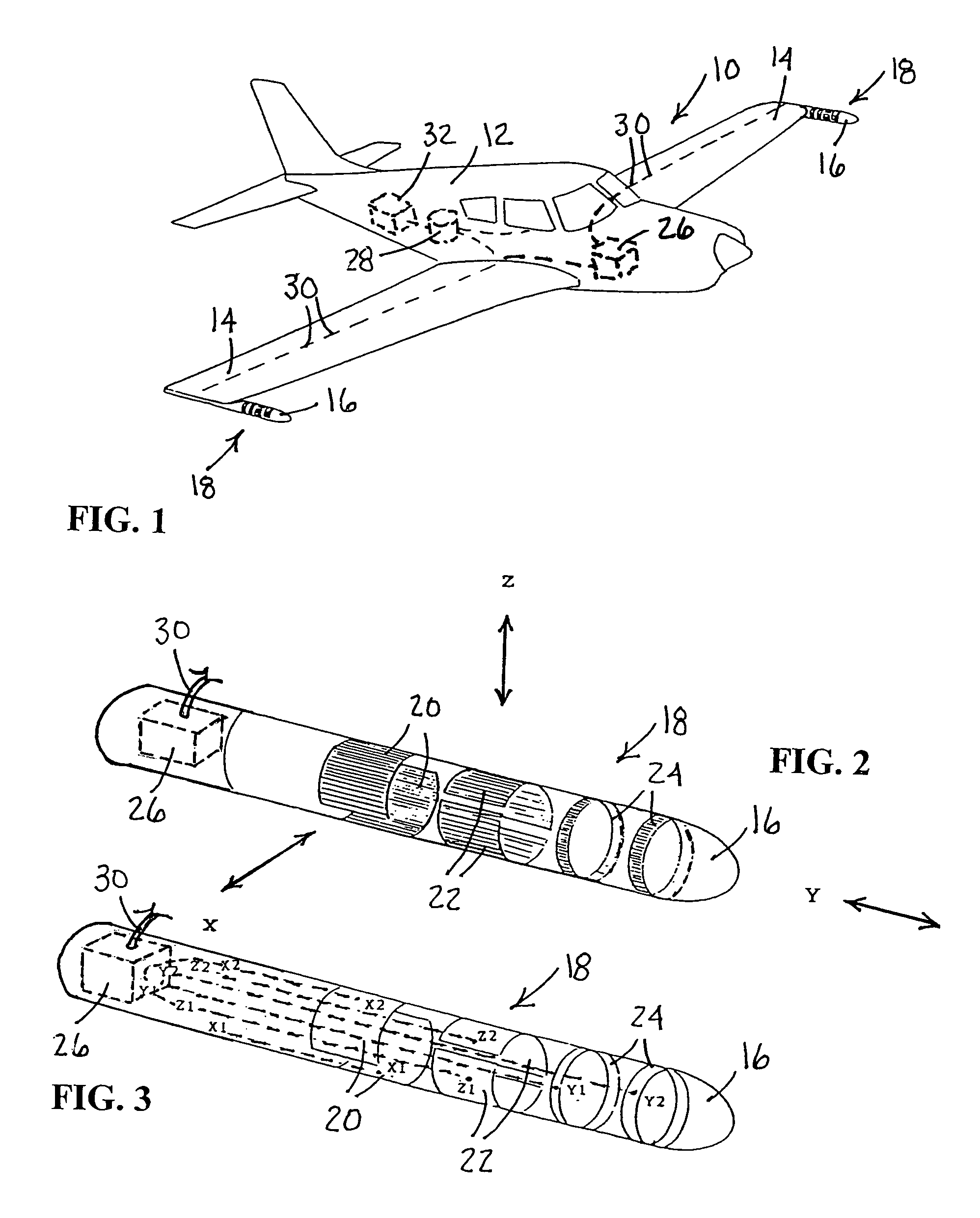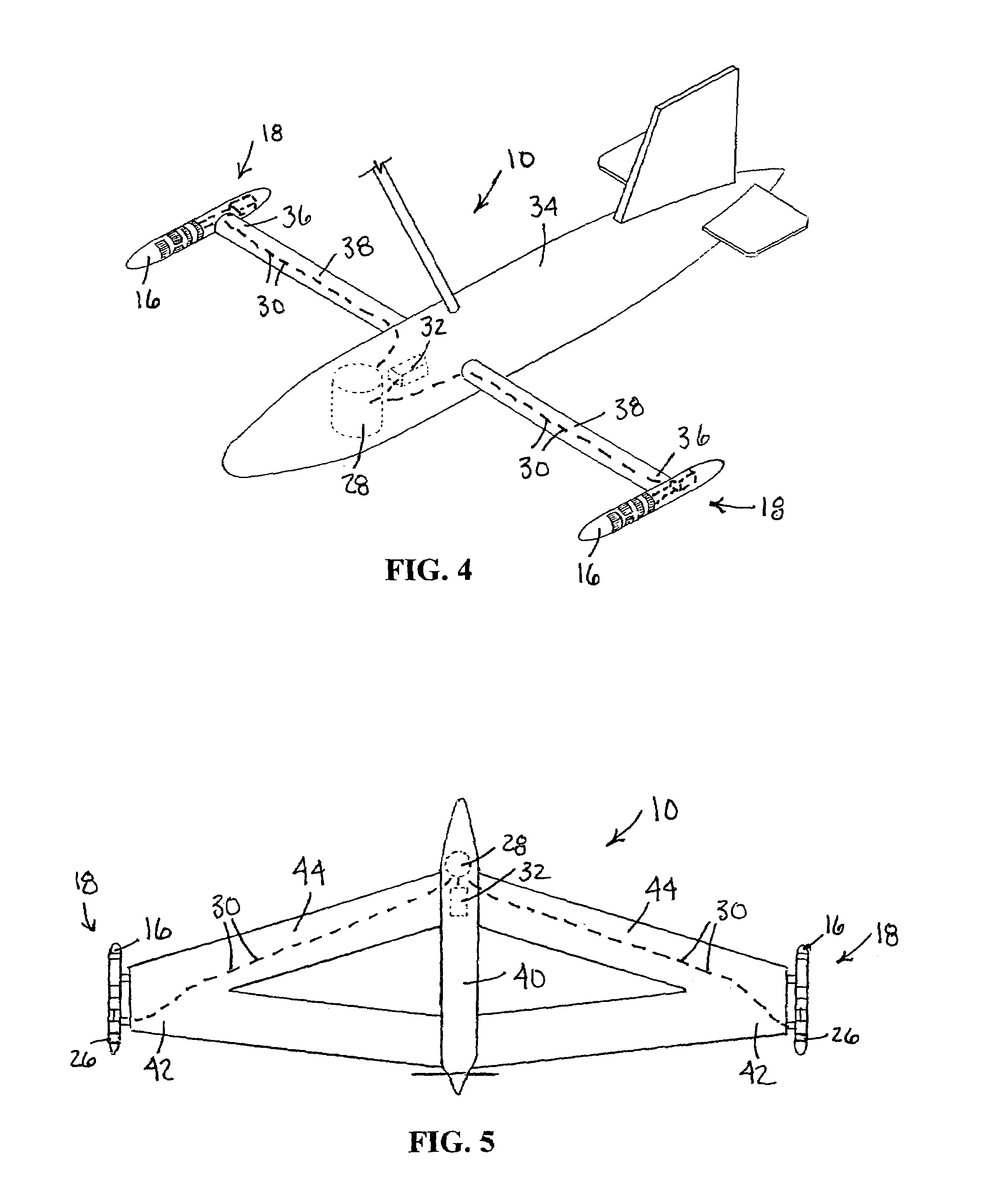Remote sensing electric field exploration system
a remote sensing and electric field technology, applied in the direction of electric/magnetic detection for transportation, using reradiation, instruments, etc., can solve the problems of not achieving sufficient commercial acceptance to survive for more than a short period, lack of sophisticated instruments and digital data acquisition and processing systems that were not available, and achieve high electrical conductivity , the effect of maximizing the effectiveness of the fracing operation
- Summary
- Abstract
- Description
- Claims
- Application Information
AI Technical Summary
Benefits of technology
Problems solved by technology
Method used
Image
Examples
Embodiment Construction
[0035]In FIG. 1, a perspective view of the subject airborne exploration system is shown having a general reference numeral 10. In this example, the exploration system 10 is mounted on a fixed wing aircraft 12. The aircraft 12 carries on each wing tip 14 an aerodynamic housing pod 16. Mounted on each of the pods 16 are electric field sensors, having general reference numeral 18. The electric field sensors 18 include three orthogonal dipoles 20, 22 and 24. The field sensor and dipoles are shown more clearly in FIGS. 2 and 3. The housing pod 16 is made to minimize drag and the impact of charged dust particles on the surfaces of the dipoles 20, 22 and 24. The sensors 18 are used in association with a triple set of 3-axis angular motion detectors 26 installed at the rear of each pod 16. The commercial angular motion detectors 26 are based on the use of vibrating quartz tuning forks and have an angular sensitivity of 0.003 degrees. The angular motion detectors are fully adequate for use i...
PUM
 Login to View More
Login to View More Abstract
Description
Claims
Application Information
 Login to View More
Login to View More - R&D
- Intellectual Property
- Life Sciences
- Materials
- Tech Scout
- Unparalleled Data Quality
- Higher Quality Content
- 60% Fewer Hallucinations
Browse by: Latest US Patents, China's latest patents, Technical Efficacy Thesaurus, Application Domain, Technology Topic, Popular Technical Reports.
© 2025 PatSnap. All rights reserved.Legal|Privacy policy|Modern Slavery Act Transparency Statement|Sitemap|About US| Contact US: help@patsnap.com



